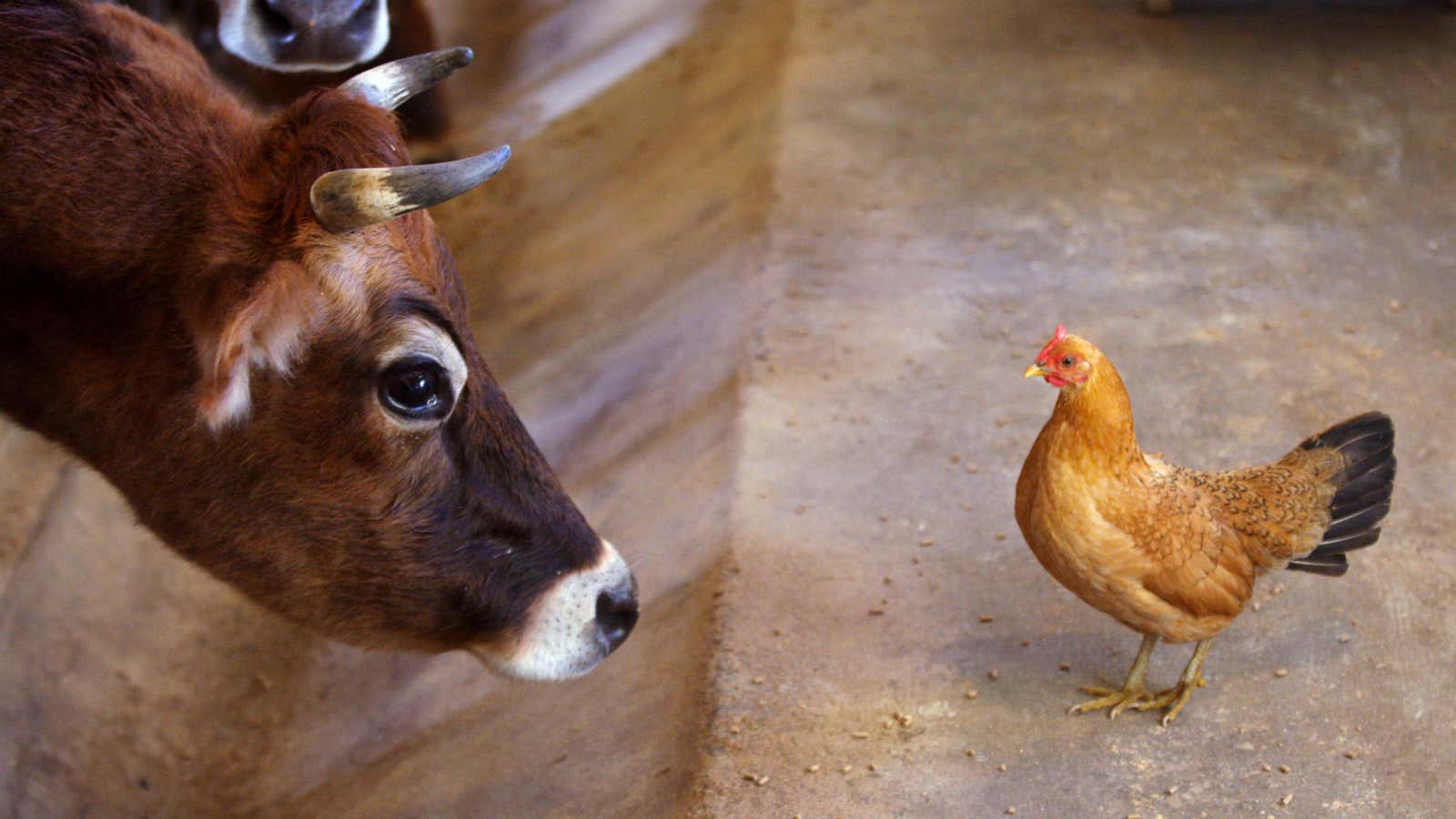“Veg out! Another study finds vegetarians live longer than meat-eaters.” I saw that headline (and others) this week and I read: “Media misunderstand science (again).”
One of the most basic concepts in science is that correlation does not imply causation—even though it is sometimes highly suggestive of it. For example, in post-war Germany, as the stork population fell, so did the human birth rate. But as I was deeply troubled to learn, storks do not cause babies—rather, economic growth led to both destruction of stork habitat, and to declining fertility rates.
So it goes with vegetarianism and longevity. It’s absolutely true that vegetarians live longer (at least among Seventh Day Adventists, the target group of the study). In fact, in this study, vegetarians live six to nine years longer, which is a huge effect. But vegetarians are also more likely to exercise, be married, smoke less and drink less alcohol—all factors that also contribute to a longer life. The actual causal relationship between becoming vegetarian and living longer is unclear, and is certainly smaller than the correlation might seem to suggest.
Now, should you be vegetarian, or at least a meat-reducer? Absolutely. In the hidden confines of factory farms, animals live in conditions of suffering that no decent human being could sanction. Eating a single egg means that one hen was locked in a cage in darkness, barely able to move, for 24 hours. Was it worth it, in exchange for the cost of going free range, or even switching to porridge in the morning? It seems pretty difficult to justify.
But for those concerned with animal suffering, touting the health benefits of vegetarianism (as many veg advocacy organisations do) can not only be misleading, it risks being downright dangerous. By far the most likely culprit for the health costs of eating meat is red meat: rich in saturated fat and carnatine. But, in terms of animal suffering per calorie, red meat pales in comparison with chicken, eggs, and fish (where the animals live in far worse conditions, and where dramatically fewer calories are produced per animal). So if, by promoting the health benefits of meat reduction, consumers cut down on red meat and compensate with chicken, eggs and fish, then the veg advocate might have done more harm than good.
As with all areas of doing good, we need to use effective altruism: to think hard, and find good evidence to work out the consequences of our actions, and try to do the actions that do the most good—whether that’s doing the most good for animals, for humans, or for anything else. Some good-seeming actions can achieve very little, and some can even backfire. Promoting the health benefits of vegetarianism might be one.
